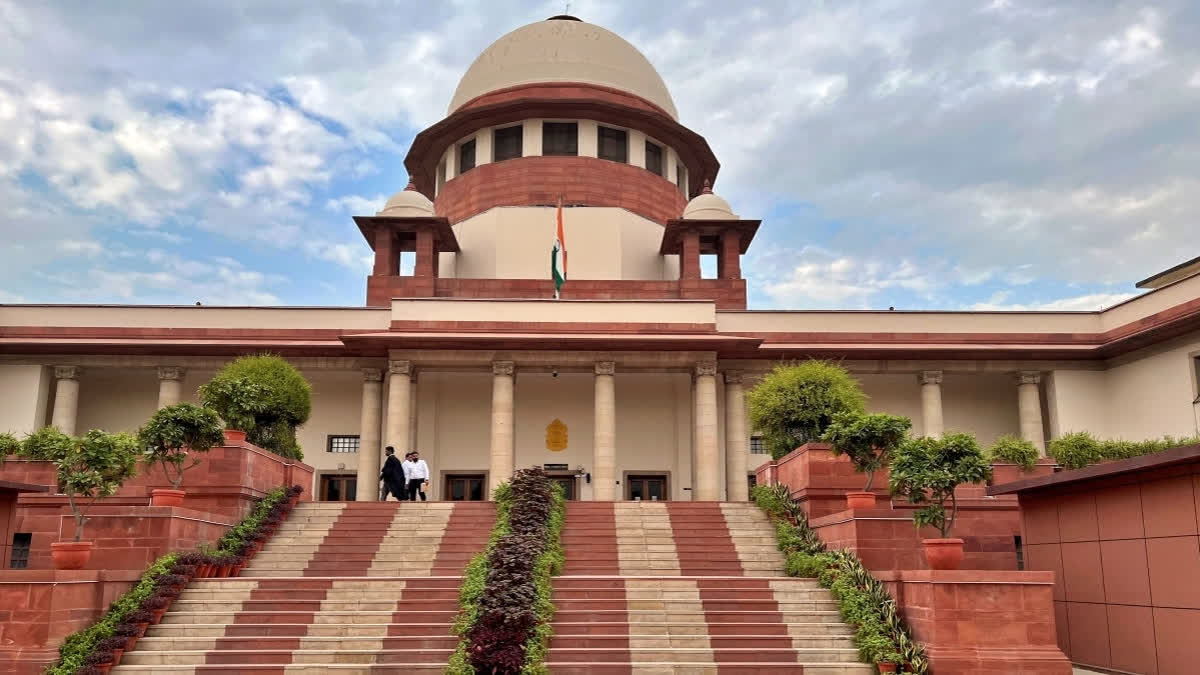New Delhi:The Supreme Court on Tuesday told the Election Commission of India (ECI) that its 2019 interim order, which required all political parties receiving funds through electoral bonds to disclose all details to the ECI in a sealed cover, is a continuing order.
A five-judge constitution bench led by Chief Justice of India D Y Chandrachud asked the ECI counsel, “You have the details of data submitted pursuant to the interim order". The counsel replied in affirmative and informed the court that they only have the sealed cover that was submitted in 2019.
The bench asked the counsel to keep it, as the court at an appropriate time would like to have a look at it. The counsel clarified that this is pertaining to the 2019 election and the interim order was passed by the apex court, and "pertaining to that data is with us". Advocate Prashant Bhushan, representing one of the petitioners in the case, said it was a continuing interim order.
The apex court clarified that the interim order's direction to gather that data continues. The Chief Justice told the ECI’s counsel, “this was not confined to the 2019 election. The mandate is that you must continue to maintain the data”. The bench made it clear that the 2019 is an interim order, which will continue till the decision.
The bench, also comprising justices Sanjiv Khanna, B R Gavai, J B Pardiwala, and Manoj Misra, is hearing a clutch of petitions challenging the validity of the Centre's electoral bonds scheme as a source of political funding. In April 2019, the Supreme Court directed all political parties to furnish forthwith to the Election Commission in sealed envelope details of money received through electoral bonds.
The top court had then refused to stay the operations of electoral bonds brought into operations through the Finance Act, 2016-17. A bench headed by then Chief Justice of India Ranjan passed interim orders for disclosing details of the bonds received by the parties with the Election Commission.
During the hearing today, Bhushan argued that no representation or petition or communication has been received by donors regarding the need of maintaining confidentiality of the identity while making donations. He said one of the justifications by the government was that donors are reluctant to show who they're funding, and "so we asked, was any representation received from any donor?"
